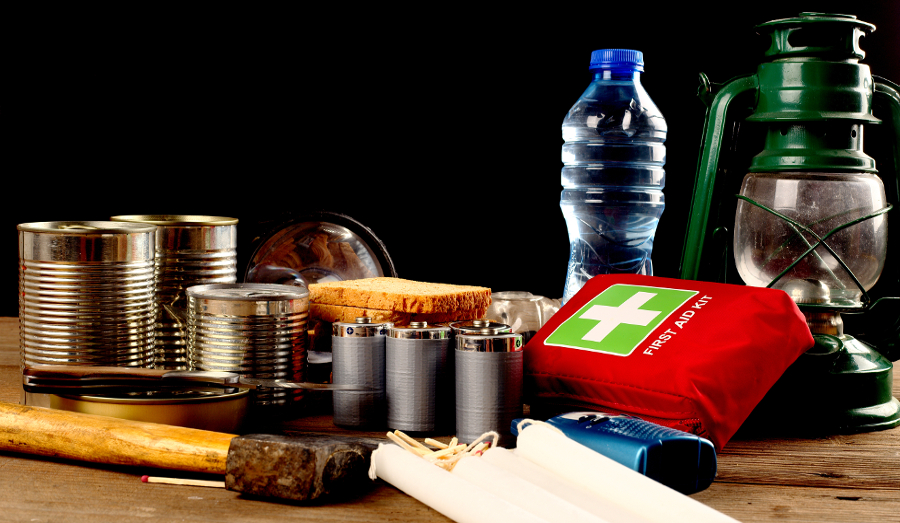Whether you’re prepping for a big storm, a natural disaster, or a societal breakdown, there are a few key things everyone needs to do. These hold true whether you’re an urban apartment-dweller or a large landowner out in the country. Without holding to these six keys, you’ll likely end up flailing when faced with any sort of crisis.
1. Identify What Your Threats Are
In order to prepare for any given scenario you need to know what the likelihood of you facing that scenario is. If you live in the middle of country you’re not going to prepare for a tsunami, and if you live in the desert you’re not going to prep for massive snowfall. Identify what types of natural disasters you can expect, as well as the likely consequences of a lack of electricity, food, and water for the population in your area.
Where will everyone else flee to? Where will they try to get food and water? Will you be able to stay put or will you have to bug out? Once you know what to expect, then you can start planning.
2. Identify What You Know and What You Don’t
Maybe you’re great at food storage but don’t know anything about self defense. Or maybe you’re a great shooter but don’t have any first aid supplies stashed away. Identify your strengths and weaknesses, both in terms of hard supplies and soft skills, then work on plugging the gaps. You don’t have to be an expert on everything, but you need to know enough about enough different things to make sure that you don’t perish due to something that could have easily been prevented.
3. Make a Plan
Start planning to close the skill and supply gaps that you’ve identified. Make plans for bugging in and bugging out. Establish code words with your family and children in case of emergencies. While no plan survives first contact with the enemy, having a plan (and preferably a backup plan or two) is better than winging it because you’ll at least have given some thought to what you’re going to do in various situations.
4. Start Learning What You Don’t Know
There’s a huge difference between book knowledge and actual knowledge, particularly when it comes to doing things with your hands. A lot of reading is obviously beneficial to developing useful skills, but it isn’t everything. You’ll need to get your hands dirty and apply the knowledge you’ve attained to put it into practical use. Take courses in first aid, food canning, shooting, homebuilding, or anything else that could come in handy.
5. Gather Your Supplies
Start to stock up on food and water, make a plan for food rotation, and keep your guns clean and your powder dry. All the skills in the world won’t make a difference if you don’t have the tools and supplies to be able to put those skills into action.
6. Don’t Get Complacent
It can be tempting to think that once you have the skills learned and the supplies stashed away that you don’t have to do anything more. But skills deteriorate over time if they aren’t practiced, and supplies deteriorate too. The last thing you want is to get into a situation in which your skills and supplies are vitally necessary and find out that you can’t remember how to make a fire, or that the 500 pounds of rice you stored was eaten by insect larvae.
Prepping is a constant process, not a one time thing. Keep up your skills and stay on top of your supplies and you’ll be prepared to face any eventuality.
This article was originally posted on Red Tea News.




